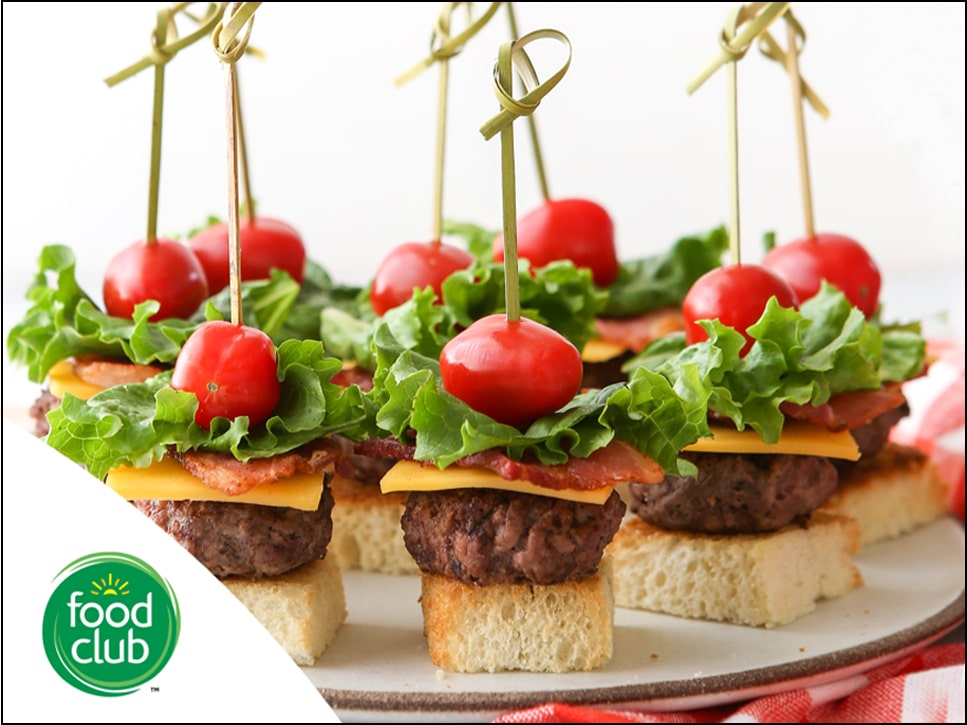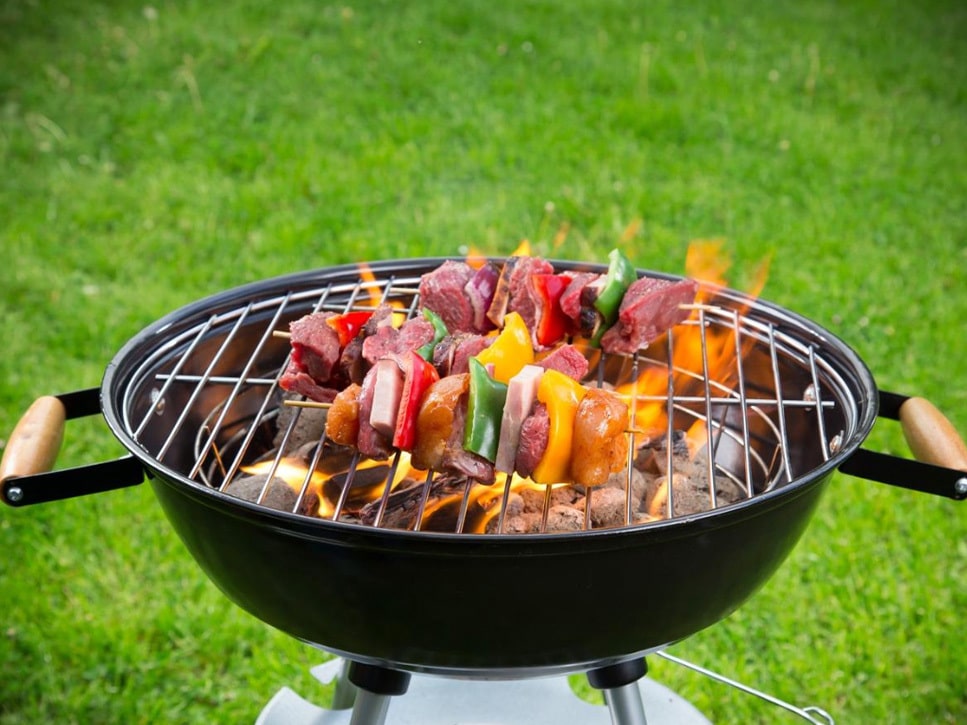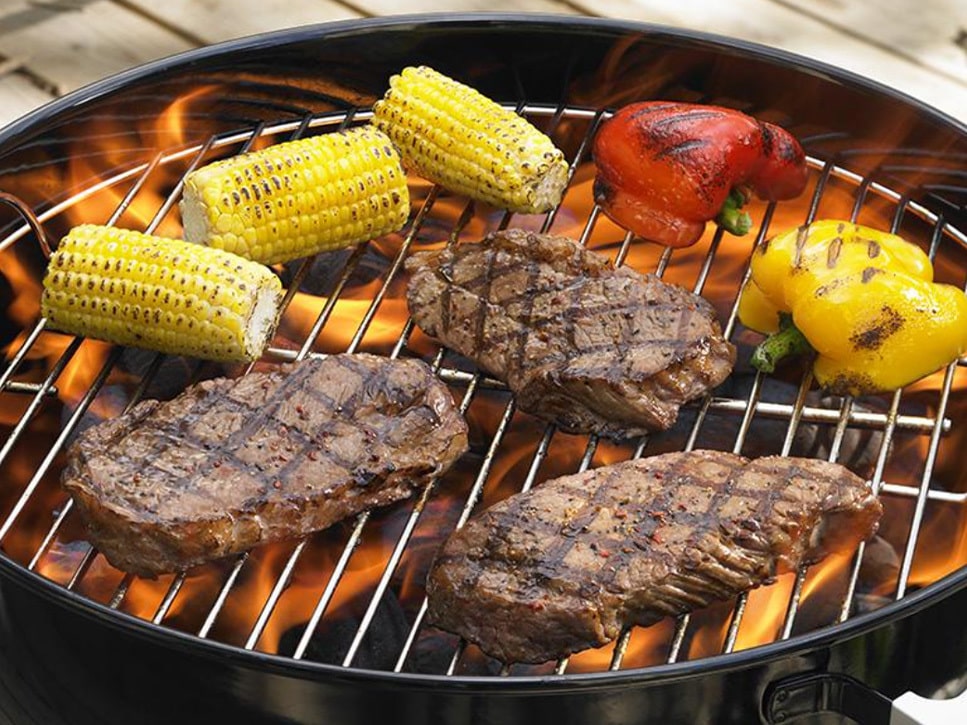Recipe Sponsored By: Food Club Ingredients 4 slices bacon, cut into 4 pieces 1 lb…
How to Smoke a Brisket
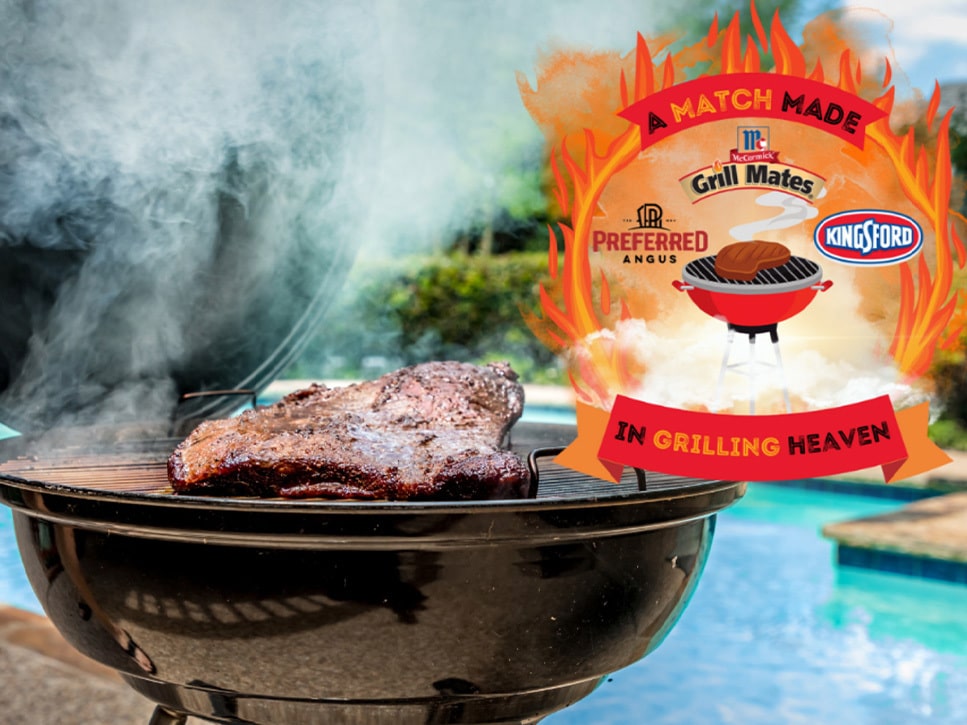
RECIPE SPONSORED BY: McCormick® Grill Mates®, Preferred Angus® and Kingsford® Charcoal
Learn the best way to smoke a brisket on a grill. Understanding the temperature of the grill and the internal temp of the brisket is the key to smoking a perfect brisket.
LET’S GET GRILLING
- Start with a Preferred Angus® Whole Beef Brisket in the 10- to 12-pound range, which is just the right size to fit on the grill. Trim off the excess top fat or “fat cap,” but leave a ¼”-thick layer of fat to keep the meat moist during the long cooking process. Sprinkle on a few tablespoons of MCCORMICK® GRILL MATES® MESQUITE RUB, spreading it evenly on both sides of the brisket. Cook immediately if you’d like, or let it sit for several hours in the refrigerator to allow the rub to penetrate the meat.
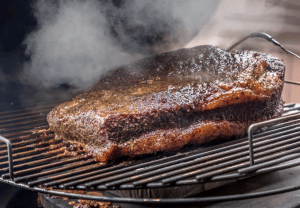
- If you’re using a kettle-type grill, use an indirect technique like the snake method to set up your grill. Be sure to use a drip pan with water directly underneath the meat to stabilize the temperature. For backyard smokers, set it up for a long smoke. Learn more about smoking here. With either method, soak a few handfuls of Kingsford® Wood Chips (hickory or mesquite) for about 30 minutes in warm water before placing atop the coals.
- Place the brisket fat side up on the top rack, cover with the lid and bring the temperature up to 225°F, using the vents to regulate the temperature. Knowing the temp in your grill is crucial, so if your grill doesn’t have a temperature gauge, purchase a digital BBQ thermometer.
- Check the temperature of the grill every hour, staying as close to 225°F as possible. Resist the temptation to open the lid unless you need to add more charcoal or soaked wood chips to maintain temperature and smoke.
- When the brisket’s internal temperature reaches about 150°F, the brisket’s surface evaporation causes the meat’s internal temperature to plateau. Pitmasters call this “the stall.” Don’t panic. Either wait out the stall, or wrap the brisket tightly in two sheets of heavy aluminum foil with 1/2 a cup of apple juice added (aka The Texas Crutch) and bring the grill temperature back up to 225°F.
- The ideal temperature of a properly smoked brisket is 195°F, but keep in mind that the internal temp of the brisket can increase by 10 degrees even after it’s been removed from the grill. The last thing you want is to overcook your brisket, which results in dry, chewy meat. Another way of testing brisket for doneness is the “feel” method: Stick a small fork in the brisket, and if it twists easily in the meat, it’s done.
This recipe was created as part of our “Match Made in Grilling Heaven” Summer Grilling Sweepstakes. Click here to enter to WIN a $5,000 patio makeover and grand prize grilling package!

